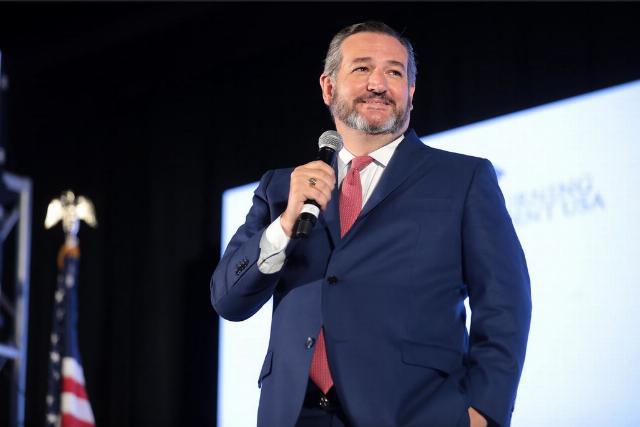Ted Cruz conducts a candidate fact check clinic
More than 60 million dollars is being spent by Democrats to help House of Representatives member Collin Allred defeat Republican Senator Ted Cruz. Tuesday night’s debate was an important opportunity for Allred to perhaps upset the incumbent senator who is in a race that might be as narrow as three percentage points. The debate demonstrated Senator Cruz’s exceptional debate skills. In particular, Cruz demonstrated the potential for political candidates to conduct their own fact checking rather relying upon journalist moderators in these critical public debates.
Gallup recently completed an annual survey once again showing that public trust in mainstream media is at all-time lows. During the 2012 Presidential debate, CNN journalist moderator Candy Crowley insisted on correcting Mitt Romney in his debate with President Barack Obama. In 2024, debates have swung back and forth between aggressive journalist moderator “fact checking” more restrained approaches like the CNN debate on June 27. The public is better served by journalists abstaining from these clear interventions. In the Vance/Walz debate, CBS moderators conducted five fact checks of Vance with zero for Walz. A recent Harvard study of fact checking found that fact checking organizations follow a profound ideological pattern that excludes conservative fact checkers. The Harvard study found:
- 0% were very right wing or fairly right wing
- 5% were slightly right of center
- 10% were “center”
- 85% were slightly left, fairly left or very left wing.
- Among that 85%, 4% were “very left wing”
These are good reasons why journalist fact checking during the debates is a bad idea. Fact checking became an urgent consideration of left-leaning journalists when Biden showed himself unable to rebut the aggressive assertions of Trump in the June 27 debate.
Cruz conducted a clinic on candidate fact checking that should be the norm going forward in political candidate debates. The Cruz team utilized an increasingly normative tool in political debates by having a live website ready. This allowed viewers to immediately examine more in-depth information about Allred’s position as a Dallas-area House member. In his opening remarks, Senator Cruz promised that he would examine Allred’s House record and compare it to his own Senate record and make a clear political case for his candidacy based on that distinction. Allred appeared genuinely surprised by the level of detail provided by Cruz in the debate.
In a particularly telling exchange, Cruz explained that a public endorsement of Allred as “bipartisan” was based on a group of Democratic governors who do not look at voting records for those that they categorize in this manner. Allred pivoted to say that he also won an award from the Chamber of Commerce, which is not a radical group. Cruz in his response explained that this was true and the Chamber of Commerce has endorsed his campaign for the Senate seat. Allred appeared unprepared for a discussion of one of the most common Cruz assertions regarding Allred’s vote on male participation in women’s sports. When challenged by Allred for a bipartisan record by Cruz, the senators listed two specific infrastructure bills for Texas highways cosponsored by two different Democratic senators. Allred had no comparable details for his work in the House.
Political candidates face exceptional constraints in these debates because they are not allowed to bring notes to the podium. This means they must commit to memory any details they hope to deploy in journalist interrogations. Journalists do not face similar constraints and do have extensive notes for their questions.
Cruz’s successful fact checking of Allred and the relatively weak response of Allred demonstrates that journalist fact checks are not necessary for political candidates settle factual differences. The pattern of favoring democratic candidates in debates and interviews is leaving these candidates weak and ill prepared to defend their ideas in free and fair debate. This is an important development for the potential of political debates that serve the public interest.
Dr. Ben Voth is professor of rhetoric and director of debate at Southern Methodist University in Dallas, Texas. He is the author of several academic books regarding political communication, presidential rhetoric, and genocide.
Image: Gage Skidmore






